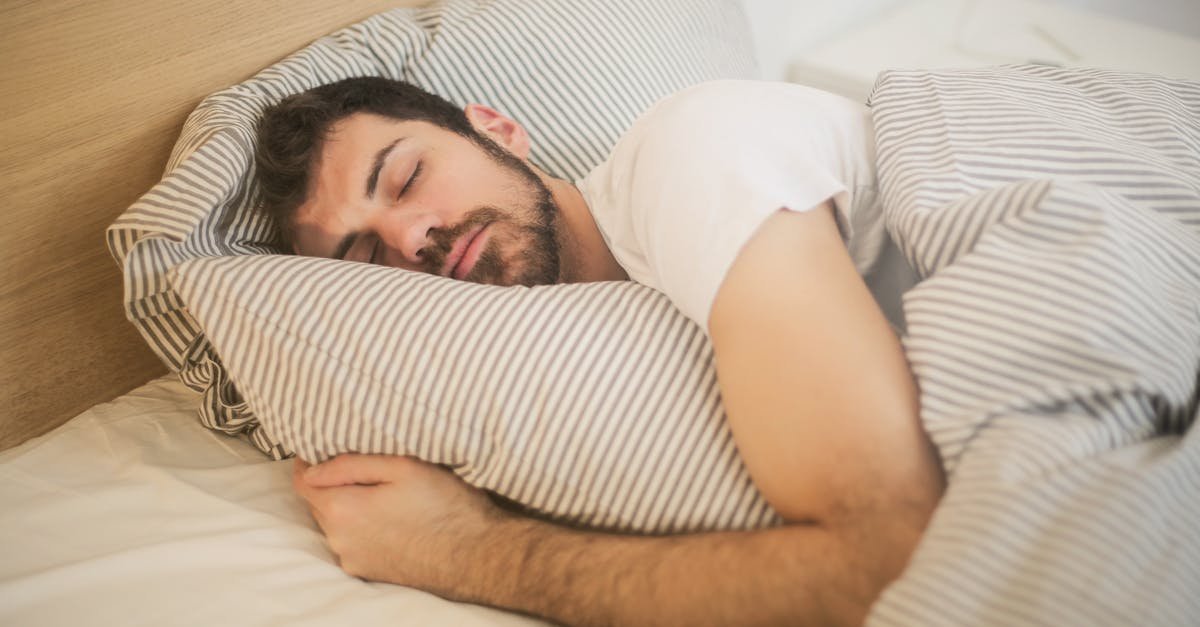Ever drag yourself out of bed feeling like you barely slept, even after 8 hours? Or maybe you toss and turn, staring at the ceiling, while your brain replays embarrassing moments from five years ago? Yeah, you’re not alone. Getting truly restful sleep can feel like a superpower these days, with busy schedules, glowing screens, and general life stress getting in the way. But what if you could actually *learn* how to sleep better? This article is your guide to doing just that. We’ll walk through some simple, practical steps – stuff called ‘sleep hygiene’ – that can seriously boost your sleep quality. Stick with us, and you’ll learn how to finally wake up feeling refreshed, more energetic, and ready to tackle your day.
Why Sleep Is a Big Deal (More Than Just Beauty Rest)
Okay, so we all know we *need* sleep. But it’s way more important than just stopping us from being grumpy (though that’s a plus!). Think of sleep like your body’s nightly maintenance crew. While you’re out cold, your body is busy repairing muscles, growing tissues, and sorting through everything that happened during the day. Your brain, especially, gets a major cleanup. It sorts memories, locking in important stuff and clearing out the junk, kind of like organizing files on a computer. Without enough good quality sleep, your immune system can take a hit, making you more likely to catch colds. Plus, your mood, focus, and even your ability to make good decisions can go downhill fast. It’s not just about feeling tired; it’s about letting your whole system recharge and reset.
Your Bedroom: Make It a Sleep Cave
Your bedroom environment plays a huge part in how well you sleep. Ideally, you want it to be like a cozy cave: dark, quiet, and cool.
- Darkness is key: Even tiny bits of light can mess with your body’s sleep signals. Think about getting blackout curtains or wearing a comfy eye mask. Cover up those annoying little lights on electronics, too.
- Keep it quiet: Noise is obviously disruptive. If you live in a noisy area, earplugs can be lifesavers. Some people find a white noise machine or a fan helpful to create a consistent, soothing sound that masks other noises. Imagine trying to sleep next to a dripping faucet – super annoying, right? White noise helps drown that out.
- Cool it down: Most people sleep best in a room that’s slightly cool, usually somewhere between 60-67 degrees Fahrenheit (around 15-19 Celsius). Too hot, and you’ll likely toss and turn.
- Comfort matters: Is your mattress saggy? Are your pillows flat pancakes? Investing in a comfortable mattress and supportive pillows that suit your sleeping style can make a world of difference.
Think of it like setting the stage for a great night’s sleep. You want everything just right so your body knows it’s showtime for Zzz’s.
Sticking to a Schedule (Even on Weekends?!)
This one might sound tough, but it’s super effective. Your body loves routine, thanks to its internal clock, sometimes called the circadian rhythm. This clock tells your body when to feel sleepy and when to feel awake. Going to bed and waking up around the same time every day, even on weekends, helps keep this clock running smoothly.
Think about it like this: If your favorite show always came on at 8 pm, you’d know when to tune in. If the time kept changing, you’d probably miss it sometimes. Your body’s the same – it likes predictability. When you have a wild sleep schedule (staying up super late on Friday, sleeping in till noon on Saturday), you throw your internal clock off track. This is what causes that groggy, jet-lagged feeling on Monday morning.
Now, does this mean you can *never* stay up late or sleep in? Not necessarily. But try to keep the difference within an hour or so of your regular schedule, especially with your wake-up time. Consistency is your friend here.
Winding Down: Your Pre-Sleep Ritual
You can’t just slam the brakes on your day and expect to instantly fall asleep. Your brain needs time to shift gears from go-go-go to slow-slow-slow. Creating a relaxing wind-down routine about 30-60 minutes before bed signals to your body that it’s time to prepare for sleep.
What does this look like? It’s different for everyone, but here are some ideas:
- Read a physical book (not on a bright screen!).
- Take a warm bath or shower – the drop in body temperature afterward can trigger sleepiness.
- Do some light stretching or gentle yoga.
- Listen to calm music or a podcast.
- Practice some deep breathing or simple meditation.
- Write down worries or tomorrow’s to-do list so they aren’t swirling in your head.
The key is to choose activities that are calming and enjoyable for you, and do them consistently each night. It’s like a cool-down after exercise – it helps your body transition smoothly.
Screens, Snacks, and Sips: What to Avoid Before Bed
Just as important as what you *do* before bed is what you *don’t* do. Certain things can really sabotage your sleep efforts.
Screens are a big one. Phones, tablets, computers, and TVs give off blue light. This specific light tricks your brain into thinking it’s still daytime, messing with the production of melatonin, the hormone that helps you sleep. Try to put screens away at least an hour before bed. If that feels impossible, use night mode settings or blue light filtering glasses.
Watch what you eat and drink. Going to bed stuffed after a huge meal can lead to discomfort and heartburn. Spicy or fatty foods can be particularly troublesome. If you’re hungry, a small, light snack might be okay, but give big meals a few hours to digest. Caffeine is another obvious culprit – it’s a stimulant designed to keep you awake! Avoid coffee, tea (unless herbal), soda, and even chocolate for several hours before bed (its effects can last longer than you think). Alcohol might make you feel drowsy initially, but it actually disrupts your sleep quality later in the night, leading to more wake-ups. And drinking too much of *anything* right before bed can mean annoying bathroom trips.
What To Do When You *Can’t* Sleep?
Okay, so you’ve done everything right – cool room, wind-down routine, no screens – but you’re still lying awake. It happens! First off, don’t panic or watch the clock. Clock-watching just increases anxiety about not sleeping, making it even harder to drift off. It’s a frustrating cycle!
If you’ve been tossing and turning for what feels like 20 minutes or so, try getting out of bed. Go to another dimly lit room and do something quiet and relaxing – read a bit (again, physical book!), listen to soft music, maybe sip some warm, non-caffeinated tea. The idea is to break the connection your brain might be making between your bed and the feeling of frustration. When you start to feel genuinely sleepy again, head back to bed.
Don’t use this time to start chores, work, or get on your phone! Keep it calm and low-key. If sleepless nights are happening really often and messing with your daily life, it’s probably a good idea to chat with your doctor. There might be other things going on that need addressing.
So, there you have it. Getting better sleep isn’t about some magic pill; it’s about building good habits – your sleep hygiene. We talked about why sleep is so crucial for your physical and mental health, like letting your body run its nightly repair shop. We covered making your bedroom a sleep sanctuary – dark, quiet, and cool. Remember the importance of a regular sleep schedule, even on weekends, to keep your body clock happy. Creating a calming wind-down routine helps signal bedtime, while avoiding things like screens, heavy meals, caffeine, and alcohol close to bed prevents sleep sabotage. And if you do find yourself awake, try getting up briefly instead of stressing in bed. Small, consistent changes really add up, leading to more energy, a better mood, and just feeling healthier overall. Be patient, experiment, and find what works for you!










